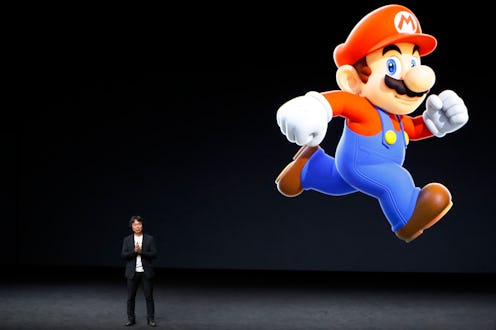News
5 Ways Video Games Are Good For You
In a fascinating new study, researchers at the University of Buffalo found that playing as villains in video games could make you a better person. The idea here is that assuming control of a “bad” character in a game — say, a terrorist, or perhaps a Sith Lord — makes players feel guilty, and that guilt can result in increased empathy in real-world situations. It’s a strong rebuke to the oft-repeated suggestion that video games make kids more violent in real life.
“Rather than leading players to become less moral, this research suggests that violent video-game play may actually lead to increased moral sensitivity,” said assistant professor Matthew Grizzard, a co-author of the study. “This may, as it does in real life, provoke players to engage in voluntary behavior that benefits others."
The researchers identified two moral arenas in which the results were particularly pronounced: “Care/harm” situations, wherein players are given the choice to hurt or help another character, and “fairness/reciprocity,” which involves basic decisions regarding justice and human rights.
It may sound surprising, but the notion that video games, for all of their flaws, may actually be good for you isn’t new. Numerous studies have identified the positive benefits as gaming, and while they don’t get as much attention as news that, say, a mass shooter happened to play GTA , their social implications are just as significant.
For example, video games can....
Improve Your Cognition
A 2013 review published in American Psychologist noted that video games improve numerous aspects of cognition — especially when the games in question are first-person shooters. The benefits include better working memory, more accurate attention allocation, enhanced problem-solving, and higher spatial resolution in visual processing. These results have been confirmed in other studies. What’s more, a researcher at Stanford suggested that the games providing these benefits “are comparable to formal courses in the extent to which they can improve spatial skills.”
Enhance Your Ability To Multi-Task
Video games can also make you better at switching from one task to another, a trait known as “cognitive flexibility” that’s obviously very helpful for modern professionals (and, really, everybody). A study published in PLOS ONE in 2013 had subjects play one of two games — StarCraft, a strategy game from the mid-90s, and the open-ended family simulation The Sims — for 40 hours over the course of a month and a half.
Both games involve players frequently switching from one task to another, and when compared with their non-gaming peers, players of both games experienced a “large increase in cognitive flexibility as measured by a wide array of non-video gaming tasks,” according to the paper.
Make You More Motivated
There’s a theory that children assess their intelligence in two different ways: Children whose attributes were complimented by adults (“You’re so smart!”) come to believe that intelligence is fixed and immutable, while those whose accomplishments were praised (“That’s a great sand castle!”) come to view intelligence as the result of effort and hard work. Children of the second category have been shown to be more motivated later in life — and video games encourage this development, as they reward gamers for successful completion of specific tasks and puzzles.
Put You In A Better Mood
Simply put, video games put you in a better emotional state. The popular puzzle game Bejeweled, for example, has been shown to decrease stress, while a 2009 study found that casual games like Angry Birds increased perceived moods and decrease brain wave activity associated with depressive-type behaviors. Some games have been found to improve “flow,” a mindset associated with heightened sense of control, decrease in self-consciousness and higher achievement later in life. One researcher even found that assuming control of a character you consider “sexy” improves your confidence for the rest of the day.
Keep You Sharper, For Longer
In a study at University of Iowa in Iowa City, researchers divided subjects over the age of 50 into two groups in order to study the natural decline in mental processing that everyone experiences as they age. One group was given crossword puzzles, while the other was given a brain-teasing video game specifically designed to improve cognition. The results were stunning: Seniors who played the brain-teaser for just two hours a week were able to delay their natural cognitive decline by up to seven years. And this was after only a total of 10 gaming hours!
(Here's hoping Bejewled works just as well.)
Images: Giphy
